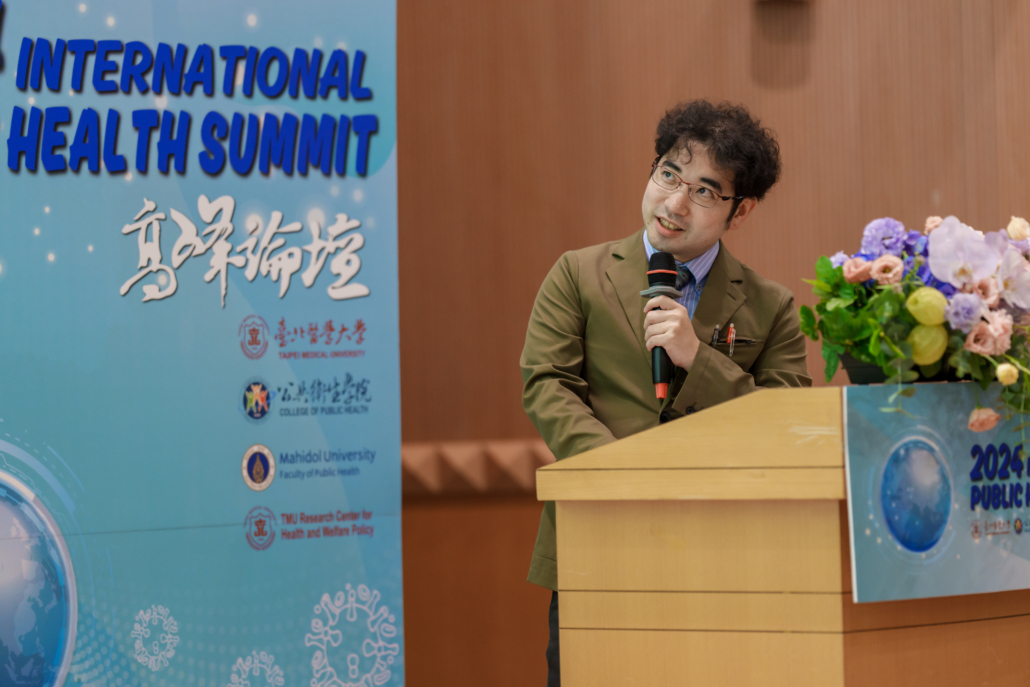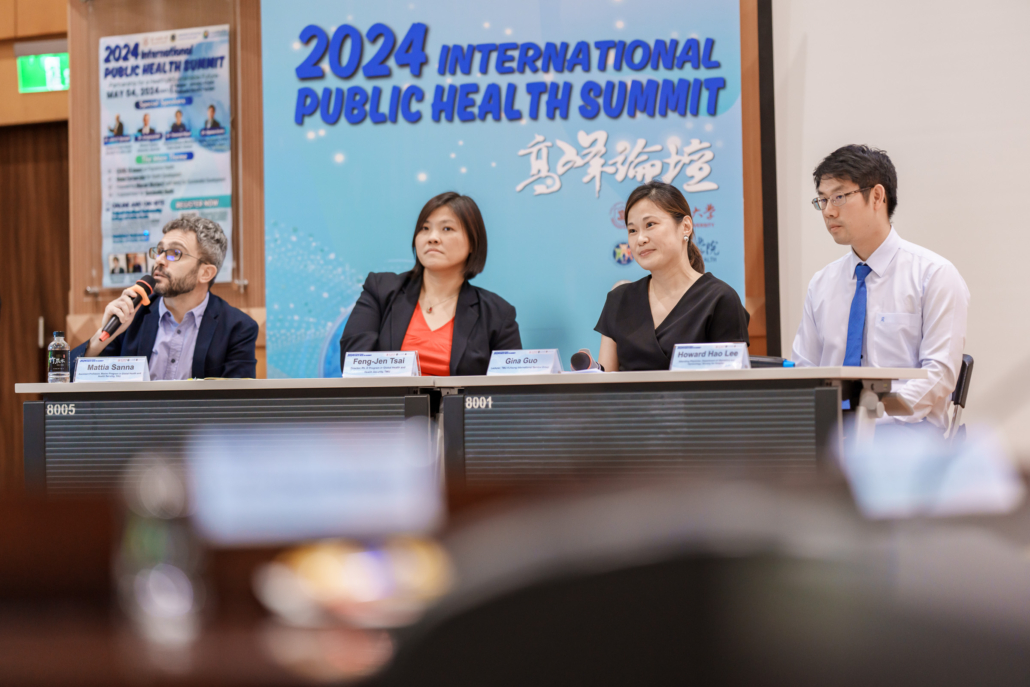Introduction of Research Center of Global Health Security
In recent years, emerging infectious diseases such as SARS, H1N1 new influenza, Ebola virus hemorrhagic fever, MERS-CoV (Mos), and COVID-19 have emerged one after another. Those pandemics not only cost human life and health, but also brought tremendous economic and social loss. For responding to the global threat, international organizations and countries such as the United States and the United Kingdom promoted the Global Health Security Agenda (GHSA) in 2014, and developed a wide range of evaluation tools for prevention, detection and response projects to implement and enhance the global joint capacity against the threat of infectious diseases.
Since 2015, with the assistance of Johns Hopkins University in the United States, Taiwan has actively participated in GHSA-related activities, and completed the on-site assessment with the JEE (Joint External Evaluation) tool from June 21 to July 1, 2016.
Taipei Medical University (TMU) participated in Taiwan’s JEE evaluation process as a coordinator and facilitator. To further enhance the research capacity in the field, TMU established the “Global Health Security Research Center” in School of Public Health in 2017.
Through international cooperation, Taiwan aims at promoting the participation in health and security affairs with countries around the world. In addition, we hope to establish a channel or platform for epidemic prevention cooperation with New Southbound countries to promote the research cooperation on global health security and empower the epidemic prevention personnel of both parties.
The missions of the Center are as follows:
01.
Conduct research on matters related to the International Health Regulations (IHR).
02.
Engage in research on topics related to the Joint External Evaluation (JEE) and the Global Health Security Agenda (GHSA).
03.
Develop the capacities of university faculty, students, and government officials in the eight core capacities of IHR, the ability to conduct JEE, and the 11 action packages of GHSA.
04.
Collect and analyze the latest developments and intelligence on national public health preparedness and disease prevention capabilities from the United States, Southeast Asian countries, and diplomatic allies, with regard to GHSA and JEE topics, and assess potential strategies for Taiwan to collaborate with these countries on epidemic prevention.
05.
Promote international exchanges relevant to global health security.
06.
Organize seminars, workshops, and educational training related to global health security.
07.
Undertake other activities in support of global health security objectives.
Director
Dr. Feng-Jen Tsai
Education
- 2010 PhD. Institute of Occupational Medicine and Industrial Hygiene, National Taiwan University
- 2005 M.S. Law, National Taiwan University
- 2002 B.S. Law, National Taiwan University
- 2002 B.S. Public Health, National Taiwan University
Cooperation research projects with Taiwan Centers for Disease Control
- Strategies and Evaluations for the Opportunities on International Cooperation of Diseases Prevention and Control
- Strategies and Evaluations for Collaboration on Diseases Prevention and Control with Southeast Asian Countries under the New Southbound Policy
- Preparation of Joint External Evaluation (JEE) as well as establishment of communication channel and collaboration on disease prevention
International cooperation
●America
Professor Feng-Jen Tsai, Nai-Wen Kuo and Herng-Ching Lin visited America and invited guests to Taiwan in the past few years. More than that, professors have attended and given several speeches during lots of international conferences, and they have also discussed research cooperation possibilities with investigators of Johns Hopkins Center for Health Security, Georgetown University Center for Global Health Science and Security.
●Geneva
Prof. Feng-Jen Tsai, Director of the Center, visited the University of Geneva, the Global Fund, and other major international NGOs to actively pursue bilateral collaboration.
●Switzerland
Prof. Feng-Jen Tsai, Director of the Center, visited the University of Lausanne for research meetings and discussions to promote bilateral research collaboration.
●Australia
Prof. Feng-Jen Tsai has made multiple visits abroad to deliver exchange lectures, participate in international conferences, and actively engage in collaboration with experts.
●Japan
Dr. Ogawa Kento from the Japan CDC served as a one-year Assistant Research Fellow at the Center, actively engaging in exchanges with the Japan CDC to strengthen Taiwan–Japan partnerships and promote bilateral research collaboration. His main responsibilities included conducting research on Taiwan’s infectious disease prevention policies and coordinating collaborative activities between Taiwan CDC and Japan CDC.
●Vietnam
Professor Nai-Wen Kuo and Tzay-Jinn Chen visit Health Department in Quảng Ninh province of Vietnam to do more possible cooperation discussion. The purpose of the visit is to deepen the cooperation of the research and the implementation of the reasearch project about building Epidemic Prevention Technology Transfer Center.
●Malaysia
Professor Feng-Jen Tsai visited Malaysia several times, in order to have meetings with related searchers and institutions, also she invited professor Low Wah Yun to visit Taiwan.
●Singapore
Professor Feng-Jen Tsai and Nai-Wen Kuo invited researchers to attend international conferences and visit government institutions in Taiwan in order to promote cooperation within both sides.
Research Achievements
International Conference/Pre-conference Workshop:
- May 2022: Organized the international conference “New Vision under the Post-Pandemic Era.”
- May 2024: Organized the international conference “Partnership for a Healthy and Sustainable Future.
Recent Paper Presentations:
- Ying-Jun Lin & Feng-Jen Tsai. PUBLIC HEALTH POLICY SPACE FOR RESPONDING TO POTENTIAL PANDEMICS UNDER THE SCM AGREEMENT. Asian J WTO Health. 2022;17:201-238
- Tejamaya M, Phanprsit W, Kim J, Tsai FJ, Muto G, Miller D, Reginald A, Granadillos N, Capule C, et al. Characteristics of COVID-19 infection clusters occurring among workers in several Asia-Pacific countries. Ind Health. 2022 Jan 12. doi: 10.2486/indhealth.2021-0227. Online ahead of print.



